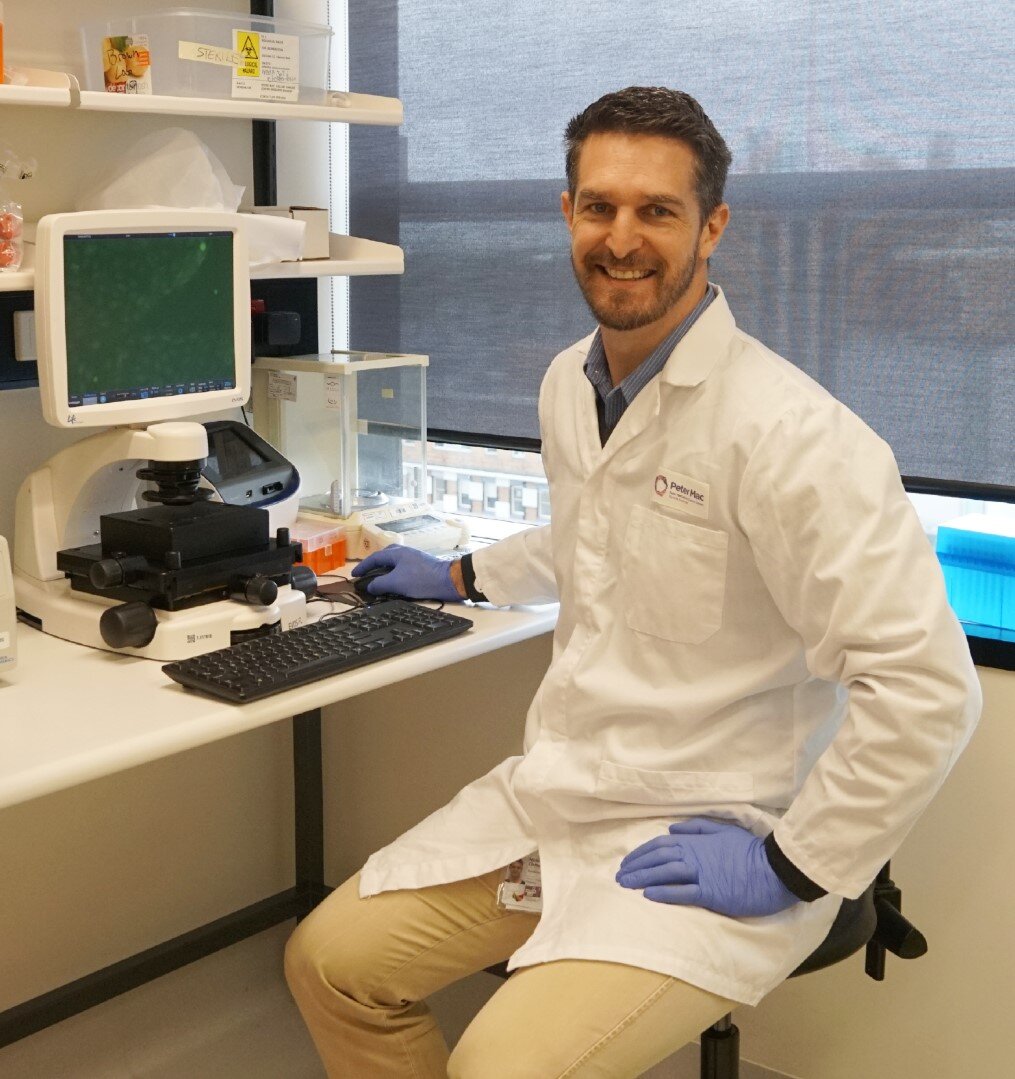Improving Outcomes in Gastro-Oesophageal Cancers
Every year in Australia, thousands of people visit their doctor with problems such as heartburn and acid reflux. Reflux occurs when acid from the stomach washes up into the oesophagus (the oesophagus is the ‘food-pipe’ that joins the throat to the stomach), and this causes symptoms such as heartburn and Barrett’s oesophagus. Barrett's oesophagus is a change in the lining of the oesophagus which is caused by reflux, and in a few people this can lead to cancer.
The Clemons Laboratory from Peter MacCalllum Cancer Centre are undertaking this study to try to find out what causes Barrett's oesophagus, why it sometimes progresses to oesophageal cancer, and how we might be able to prevent these conditions from occurring in the future. We are also interested in trying to identify new ways to treat oesophageal cancer and how to detect it early.
A/Prof Nick Clemons
We will look for factors (e.g. proteins) and changes in genes that are associated with various disorders of the oesophagus, including cancer. For such studies it is important to have blood and tissue samples from people with and without these conditions.
Ultimately, we aim to use this research to develop new treatments that will prevent cancers from developing or to treat cancers that have already occurred, and to develop tests that might help to identify people with certain oesophageal conditions or those lesions that are at highest risk of progressing to cancer. Therefore, the Gastrointestinal Cancer Program have teamed up with Upper Gastrointestinal Surgeons at St Vincent's Hospital to provide oesophageal tissue for research.
Aim:
- To understand the development and progression of Barrett's oesophagus and oesophageal cancer

Status: Currently recruiting
Sites: St Vincent’s Health, Epworth HealthCare
Ethics: HREC/44873/PMCC-2018-157667
Principal Investigator:
A/P Nicholas Clemons, Peter MacCallum Cancer Centre
Mr Michael Hii, St Vincent’s Health, Epworth HealthCare
Eligibility
Inclusion
Adults ≥18 years of age
Undergoing treatment for oesophageal cancer?
Exclusion
Unable to provide own consent
Outcome Measures
Better understanding of the cellular origin and molecular drivers of both Barrett’s oesophagus and oesophageal cancer
Allow rational design of novel, mechanism-based therapeutic strategies to target the disease
Reveal potential biomarkers for use in stratification of patients into different management and treatment pathways

